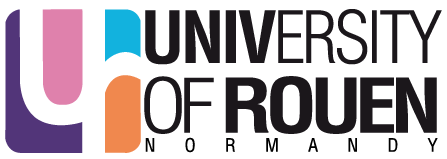In the first phase – 2014-2019 – REP was concerned with defending a Humboldtian philosophy of language, reminding us that word-construction, grammar, linguistic patterning, metaphor, and the act of translating are all crucial to us as individuals, and crucial for society. Philosophy has to move beyond words, to ask how words and worldviews are tied up together in linguistic patterning, in cultural narratives, and frameworks of understanding. In the Humboldtian Philosophy of Language, it is essential to strive to understand how we live together, communicate together, create together and imagine together in society, in history, in time and in space. In this first phase, the main actors, organizing events in Rouen and around the world were José-Vicente Lozano, Adam Głaz, Jerzy Bartmiṅski, Stanislava Bartmi ṅska, Maciej Abramowicz, Jürgen Trabant, James Underhill, Marko Pajević,, John E. Joseph, Irena Vaṅková, Anna Wierzbicka, Jacques François and Mariarosaria Gianninoto.
These actors reflect the multilingual nature of the project. The diversity of actors in any one language enabled us to avoid pigeon-holing specific languages within reductive forms and schémas. Our various Polish, Czech, Spanish, and German colleagues reminded us that worldviews are always diverse and multiple, constantly changing and transforming themselves. This enabled us to avoid formalism, and enabled us to ask how individuals creatively negotiate the flexible forms of linguistic patterning. The Slavic, Romance and Germanic languages all forced us to take into account the grammars of the various languages and linguistic families. How does morphology affect conceptualization? How do diminutives work? How is feeling expressed and what resources enable us to shade the meanings we sketch in language?
Mariarosaria Giannotto’s contribution in video conferences and her co-authored book, Migrating Meanings: Sharing Keywords in a Global World (2019), took us beyond Europe into Chinese worldviews. And the collaboration between REP and the Australian National University (ANU) took us into questions of the universality of keywords, and beyond Europe once more. Nevertheless, in terms of theory and in terms of the languages represented, REP has tended to remain somewhat Eurocentric, and our Hearts & Parts Conference (May 2019) and Homelands and Heartlands Conference (June 2018), where designed to counter this latent eurocentrism by opening up to African and Australian languages. The CNRS in Paris, and the ANU have helped REP in this endeavour.
REP’s events tend to concentrate on two or three key languages, while juxtaposing these investigations into diversity and complexity with other radically different worldviews and linguistic systems. This reflects REP’s “glocal” approach to language and culture (global & local). It demonstrates REP’s attachment to Rouen, and to fully exploiting the language-rich resources of Normandie Université, but it reaffirms REP’s belief in Rouen’s strategic geopolitical, economic and cultural role in the world. REP reaffirms Rouen as a Port and an International Hub for cultural and intellectual exchanges. And our partners in Australia, Europe, and Normandy have responded warmly to the invitation to come and share our resources and make use of our audio-visual service for promoting their own ongoing research and the projects we develop together.
In Rouen, we consider our city’s role to be both a historical reality and an ongoing adventure. This is inseparable from the project to build a great regional university. When our partners from around the world come to Rouen to take part in our projects and to promote their own international activities, they help us invent new ways of working together in Caen, Le Havre and Rouen.
But celebrating Rouen is also a way of reminding ourselves that everywhere around the world, linguistic communities are inventing themselves, creating cultures, and socializing individuals. In REP, we believe events and ongoing reflection happens here and everywhere. While the mega-cities offer fantastic possibilities for concocting new cultural exchanges, in REP, we tend to believe we think better on the fringes than in the centres, because, ultimately, the centre essentializes and excludes. Most people live elsewhere on the fringes. And often it is easier to set up and sustain meaningful exchanges and working relations in less stressful environments. REP believes that we ourselves can create the atmosphere required for deep creative thinking in language more easily and more sustainably in Rouen, in Caen, in Lublin, in Prague, in Belfast, in and Canberra, than in the more traditional Euro-capitals like Madrid, Paris, or London.

